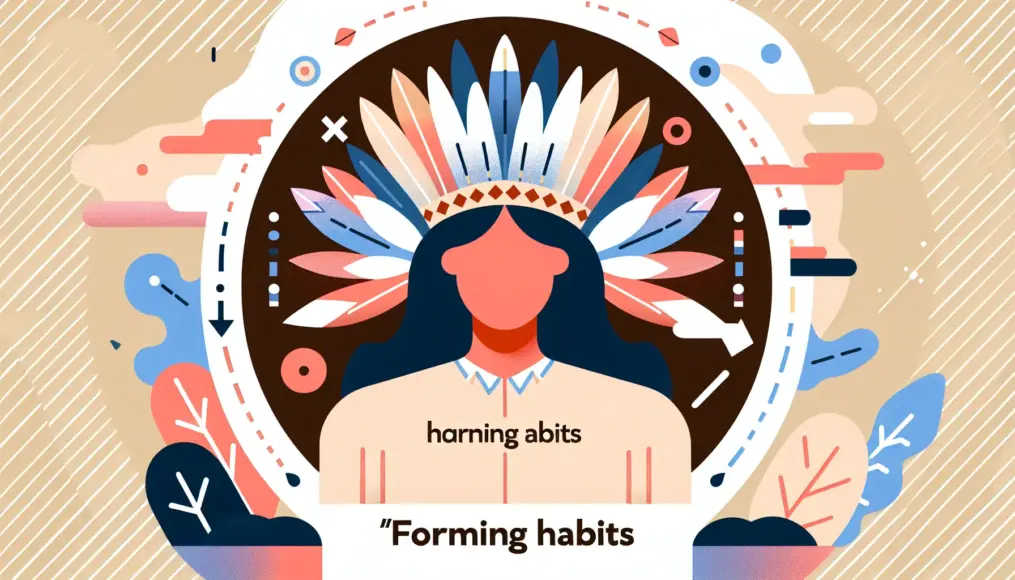Emotional control is an essential skill in our daily lives. By managing our thoughts and feelings, we can reduce stress and lead a more fulfilling life. In this article, we’ll explore practical ways to make emotional control a habit and suggest actionable approaches for you to try.
Getting a handle on your emotional state can promote positive thinking and lead to greater emotional stability. When you understand and harness your feelings, you not only become better at managing stress but also improve your relationships with others. Let’s dive into some effective methods to help you on this journey.
- The Importance of Emotional Control and Its Benefits
- The Psychological Mechanisms Behind Habit Formation
- Practical Techniques for Emotional Control in Everyday Life
Understanding Emotional Control
Emotional control plays a significant role in our lives. By understanding and managing our emotions effectively, we can reduce daily stress and anxiety, leading to a more positive life. In this section, we’ll explore what emotions are, why they matter, and the benefits of mastering emotional control.
Defining Emotions and Their Importance
Emotions encompass the various feelings and sensations we experience, such as joy, sadness, anger, and anxiety. These emotions greatly influence our actions and decisions. Understanding and controlling our feelings can enhance self-awareness and improve our relationships. Importantly, being able to process emotions appropriately is crucial for reducing stress and maintaining mental health.
When we can manage our emotions, we learn to temper emotional reactions and develop the capacity to assess situations calmly. This ability can enhance our interpersonal relationships and work efficiency, ultimately leading to better outcomes in our daily lives.
- Emotions refer to a range of feelings and sensations
- Helps improve self-awareness and relationships
- Essential for reducing stress and maintaining mental health
Benefits of Emotional Control
Mastering emotional control brings numerous advantages to our lives. First, it aids in stress management. By effectively regulating our emotions, we can identify stressors and address them appropriately. This leads to greater emotional stability and a healthier lifestyle.
Second, it fosters positive thinking. By controlling our emotions and dealing with negative feelings, we can cultivate a more positive outlook. This shift often results in increased satisfaction and happiness in our daily lives.
Lastly, emotional control can improve our relationships. By understanding and expressing our feelings appropriately, we can communicate more smoothly with others and build stronger connections.

If you found this article intriguing, you might also enjoy “Habits for Mastering Your Emotions“. This piece offers practical habits and techniques for effectively managing emotions in everyday life, providing valuable tips to deepen your emotional control.
- Enables effective stress management
- Cultivates positive thinking
- Improves relationships
The Power of Habit Formation and Its Impact
By making emotional control a habit, we can significantly shift our mental state and behavior. Habit formation is the key to performing new actions effortlessly, guiding us to a state where conscious effort is no longer necessary. In this chapter, we’ll delve into what habits are and explore the psychological mechanisms behind habit formation. Understanding habits will enable you to practice emotional control more effectively.
What Are Habits?
Habits refer to actions or thought patterns that become unconscious over time. In our daily lives, we possess numerous habits that greatly impact our quality of life and productivity. Good habits can enhance our health, relationships, and work efficiency, while bad habits can lead to negative consequences.
When it comes to emotional control, forming positive habits is crucial. For instance, by developing a habit of observing and appropriately responding to our daily emotions, we can reduce stress and anxiety, maintaining a stable mental state.
- Habits are actions or thought patterns performed unconsciously.
- Good habits improve the quality of life.
- Positive habits are essential for emotional control.
The Psychological Mechanisms of Habit Formation
There is a psychological mechanism behind habit formation. Initially, when we repeat a behavior, neural pathways are formed in the brain, allowing that behavior to be performed automatically. This process is known as “habit formation.” To turn a new behavior into a habit, repetitive practice is essential.
Additionally, the role of “rewards” is crucial in the habit formation process. Positive outcomes or satisfaction gained after an action serve as motivation to repeat that behavior. To cultivate habits related to emotional control, accumulating small successes can be particularly effective. This builds a sense of self-efficacy, increasing your motivation to maintain better habits.

If you found this article interesting, you might also like our piece on “How to Enrich Your Daily Life through Habitual Anger Management.” This article presents practical methods for effectively managing your emotions through habit formation, allowing you to cultivate a better daily life.
- Habit formation is a process of creating neural pathways in the brain.
- Rewards following actions motivate habit formation.
- Small successes enhance self-efficacy.
Habits to Help Manage Your Emotions
Effectively managing your emotions hinges on the habits you incorporate into your daily life. In this section, we’ll focus on two key practices: “mindfulness” and “positive thinking habits.” We’ll explore how these practices can aid in emotional regulation. By developing these habits, you can maintain mental stability and enhance your ability to manage stress.
Mindfulness and Observing Your Emotions
Mindfulness is a practice designed to help you focus your awareness on the present moment. Through this practice, you cultivate the ability to observe your thoughts and feelings objectively. By tuning into your emotions, you can understand how you feel in different situations and choose how to respond.
A good starting point is to focus on your breath or engage your senses in everyday life. For instance, while taking a walk, pay attention to the sights and sounds around you. This helps you concentrate on the here and now, reducing stress and anxiety while making it easier to manage your emotions.
- Mindfulness helps you concentrate on the present
- You develop the ability to observe your emotions objectively
- Engaging your senses in daily life is effective
Cultivating Positive Thinking Habits
Nurturing positive thinking habits is equally crucial for emotional management. When negative thoughts arise, countering them with positive alternatives can significantly improve your mood. For example, when you experience a setback, reminding yourself that “next time will be better” boosts your self-esteem.
Additionally, cultivating a sense of gratitude can foster positive thinking. By making it a habit to appreciate the little things each day, you can enhance your sense of happiness in daily life. This, in turn, helps reduce stress and makes it easier to control your emotions.
- Think of positive alternatives to counter negative thoughts
- You can boost your self-esteem
- Cultivating gratitude increases daily happiness
Practical Ways to Manage Your Emotions in Daily Life
Incorporating emotional control into your daily life can be achieved through small habits and useful tools that you can practice every day. In this section, we’ll explore specific methods and tools for managing your emotions. By integrating these practices, you can reduce daily stress and maintain a sense of mental stability.
Simple Daily Habits for Emotional Control
Building small, consistent habits is an effective way to bring emotional control into your everyday life. For instance, starting your morning with a moment of gratitude can set a positive tone for the day. Taking time to appreciate the little things around you fosters a more positive mindset.
Additionally, incorporating stretching or deep breathing exercises can help relax both your mind and body. Even a brief period of intentional movement can alleviate stress and help you center your thoughts. By weaving these small habits into your daily routine, you’ll find it easier to manage your emotions.
- Take time each morning to practice gratitude
- Incorporate stretching and deep breathing
- Build small habits into your everyday life
Tools for Calming Your Emotions
There are many tools available to assist you in managing your emotions. For example, journaling is an effective way to sort through and understand your feelings. By recording daily events and emotions, you can gain insight into your inner self and find clarity.
Moreover, using meditation apps or mindfulness audio guides allows you to take time to calm your mind wherever you are. These tools provide support for maintaining mental stability even amidst a busy schedule. Finding the right tools that resonate with you can make your emotional management more effective.

If you’re interested in this topic, you might also enjoy reading “Practical Ways to Effectively Manage Your Emotions in Daily Life.” This article offers practical strategies for controlling your emotions, filled with valuable insights for your daily life. Be sure to check it out and deepen your emotional stability!
- Use journaling to clarify your emotions
- Utilize meditation apps and mindfulness audio guides
- Find and implement tools that work for you
Conclusion
Managing our emotions is crucial for enhancing the quality of our lives. By incorporating habits and methods for emotional regulation into our daily routines, we can reduce stress and achieve greater mental stability. Practicing mindfulness and cultivating positive thinking can deepen our self-awareness and help us build better relationships.
Moreover, utilizing specific techniques and tools can make it even easier to manage our emotions effectively. By integrating these practices into your everyday life, you too can attain a sense of calm and balance. So why not start today?
- Managing emotions enhances quality of life
- Mindfulness and positive thinking are effective approaches
- Use practical methods and tools to achieve emotional stability
Take this opportunity to gain better control over your emotions and lead a more fulfilling life. We’d love to hear about your experiences and thoughts in the comments!














































Comment